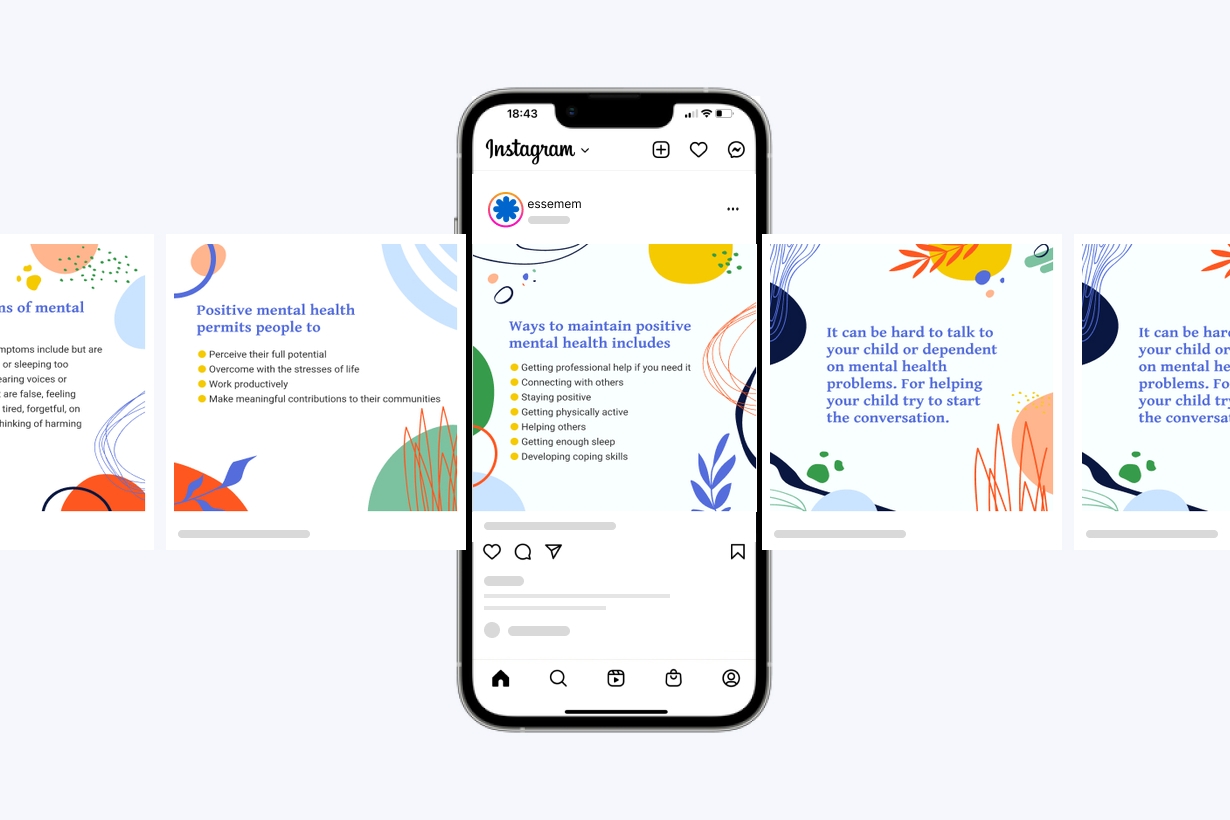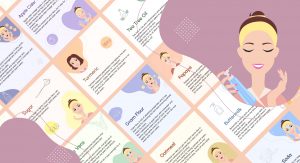This bundle includes 20 high quality images with unique and relevant texts. Download these ready made content for your social promotions.
Mental health includes our emotional, psychological and social well-being. It acts upon how we think, feel, handle stress, relate to others, and make choices. Mental health is dominant from childhood and adolescence through adulthood. Mental health problems are very common in the world, because of a lot of stress surrounding us. We are pleased to share some useful information and tips concerning this issue.

The symptoms of mental health
Mental Health symptoms include but are not limited to eating or sleeping too much or too little, hearing voices or believing things that are false, feeling unusually confused, tired, forgetful, on edge, angry, upset, thinking of harming yourself or others.

Positive mental health permits people to:
- Perceive their full potential
- Overcome with the stresses of life
- Work productively
- Make meaningful contributions to their communities

Ways to maintain positive mental health includes:
- Getting professional help if you need it
- Connecting with others
- Staying positive
- Getting physically active
- Helping others
- Getting enough sleep
- Developing coping skills

Mental health problems don’t only strike adults. Children, teens and young adults can also have mental health problems.

It can be hard to talk to your child or dependent on mental health problems. For helping your child try to start the conversation.

Educators are often the first to notice mental health problems. Educators should find ways to help students and their families using more professional approaches and networks.

In the schools educators can promote social and emotional competency and build resilience, help ensure a positive, safe school environment, encourage helping others, teach and reinforce positive behaviors and decision-making.

Even very young children may show early warning signs of mental health threats. These mental health problems are usually clinically diagnosable, and can be a product of the interaction of biological, psychological, and social factors.

People with mental illness are not violent and only 3%–5% of violent acts can be assigned to individuals living with a serious mental illness.

The factors that contribute to mental health problems are biological, such as genes, physical illness, injury, or brain chemistry, family history of mental health problems, trauma or a history of abuse.

The treatment of mental health problems includes medication, therapy, or both. It is very individual.

If your family member or friend has mental problems you can express your concern and support, remind your friend or family member that help is available, ask questions, listen to ideas, and be responsive when the topic of mental health problems come up.

Feelings of sadness, anxiety, irritability, or sleep problems are common for everyone. But when these feelings get intense, last for a long period of time, and begin to interfere with school, work, and relationships, it may be a sign of a mental health problem.

The types of mental health disorders
- mood disorders (such as depression or bipolar disorder)
- anxiety disorders.
- personality disorders.
- psychotic disorders (such as schizophrenia)
- eating disorders.
- trauma-related disorders (such as post-traumatic stress disorder)
- substance abuse disorders.

These are normal feelings for most people. They are considered a type of mental health disorder when they get out of control and harm you and the people around you.

Make the most of life:
More – forgiving, enjoying the present, being productive, reading, complementing, doing what you love it
Less – resenting, waiting for what’s next, procrastination, texting, judging, caring what people think

In our world full of distractions, create some space for nothingness, stop taking your phone to the bathroom, stop using it while you eat, stop taking your phone out when you have 1 or 2 minutes for rest.

Your emotional experience is valid and totally separate from anyone else’s.

There are many types of behaviors that may affect your mental health, for example comparing yourself to others, not seeing your own value, underplaying your talents and skills, seeking the approval of others, letting others set boundaries for you…

Don’t forget that self love means that nothing needs to change, it means that loving yourself is enough to be honest about what needs to be changed.
You can use "Mental Health" as Instagram Carousel

Ads Design Maker for Social Media Needs
Everyday tool for SMM needs.



